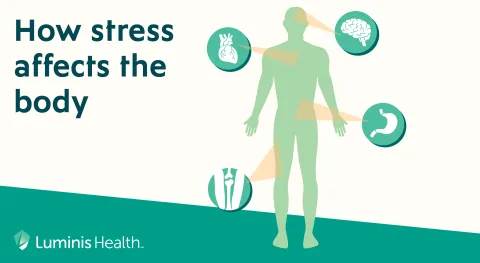More than 60 million adults in the U.S. experience heartburn, the most common symptom of gastroesophageal reflux disease (GERD).
GERD is a digestive condition that causes indigestion and acid reflux. If you feel a burning sensation below your ribs or a sour taste at the back of your mouth after you eat, GERD may be to blame. But GERD causes more than discomfort. It increases your risk of stomach and esophageal cancers.
Fortunately, GERD symptoms are often treatable with diet and lifestyle changes. Obesity, smoking and drinking alcohol all increase your risk of GERD and make symptoms worse. And if you’re overweight, the extra weight pushes the contents of your stomach back up to your throat. The most effective ways to prevent GERD include losing weight and not smoking or drinking.
In addition to these lifestyle changes, here are some other tips to avoid GERD:
1. Don’t lie down after eating.
Think of your stomach as a cup of hydrochloric acid (which the stomach produces), combined with the food you eat. Standing or sitting upright, the acid is more likely to stay in your stomach. Lying down, the contents of your stomach can spill and move up to your throat and the back of your mouth. Allow gravity to do its part in preventing GERD by standing or sitting upright after a meal. Walking can also help encourage proper digestion.
2. Finish eating meals 2-3 hours before sleeping.
This allows the stomach acid to move out of your stomach before lying down for the night or taking a nap.
3. Avoid trigger foods.
Trigger foods can include chocolate, peppermint, fried or fatty foods, citrus fruits and juices, tomato products, vinegar and pepper. Coffee, alcohol and carbonated drinks can also make symptoms worse.
4. Eat smaller portions.
Large meals fill the stomach, causing pressure that pushes stomach fluid up toward the throat.
5. Raise the upper body while sleeping.
Use six-inch blocks or a special wedge-shaped pillow to keep acid in the stomach by raising your entire upper body while you sleep. This decreases pressure on your stomach and relieves symptoms.
6. Be wise about antacids.
If you’re currently taking antacids or over-the-counter medications, or have in the past, it’s important to visit your primary care doctor. These medicines may wrongly mask symptoms of stomach and esophageal cancers.
While GERD is not life-threatening, it’s important to talk to your primary care doctor about your symptoms. Your doctor can help you change behaviors and manage medication based on your individual needs. In some cases, your doctor may refer you to a surgeon.




